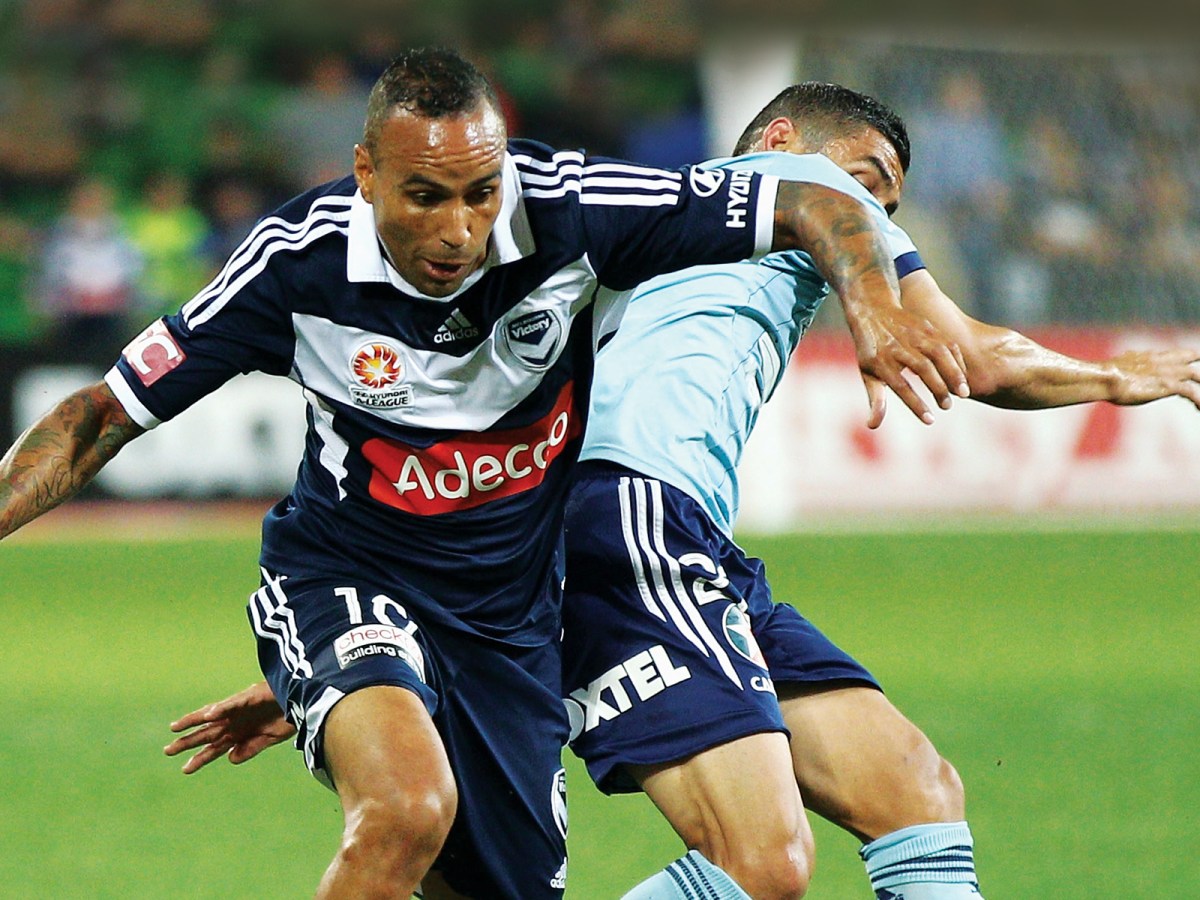UPDATE: This story has been updated to include details of TCL’s sponsorship.
The 2014-15 A-League season kicks off tonight in Melbourne when home team the Victory host the Western Sydney Wanderers at Etihad Stadium. It’s the 10th season of this iteration of Australia’s professional association football competition and it’s expected to be one of the biggest and best.
Harvey Norman, arguably the country’s most iconic retailer of appliances and consumer electronics, is an official A-League Partner. The company made the leap into sponsoring association football last season when it partnered with SBS’s coverage of Friday night matches.
Harvey Norman’s sponsorship partner last season was LG Electronics but the Korean giant has decided not to return for this season, focusing instead on the 2015 Cricket World Cup, for which it is a global partner. In addition to this, sources close to last year’s deal say LG was not completely satisfied with its return on investment and that association football in Australia doesn’t have as mature an approach to corporate partners as, say, the AFL or NRL.
Sticking with the A-League seems to be a good fit for Harvey Norman as the sport attracts a very different crowd to rugby league and horse racing, the other two sports it most prominently sponsors. The A-League fan is, generally speaking, of a higher socio-economic standard, is passionate without being fanatical and, perhaps most important of all, spread across the entire continent. While the NRL is incredibly popular in New South Wales and Queensland and horse racing has strong niches of support, the A-League is broadly popular nationwide. Television coverage on SBS’s primary channel, SBS One, will assist Harvey Norman in communicating to its customers and potential customers.
UPDATE: Harvey Norman confirmed after this story was written that Chinese TV manufacturer TCL Electronics is its industry sponsor partner for the 2014-15 A-League season. This omission was made because TCL is not listed as an A-League official partner on the competition website. TCL signage was broadcast nationwide throughout the first round of the A-League, which attracted record crowds and interest, and the exposure could broadly be described as excellent.
Among the competition’s 10 teams there isn’t a huge amount of corporate involvement from the consumer electronics industry. Mitsubishi Electric is an official partner of the Western Sydney Wanderers, one tier below the naming rights partner and major sponsor NRMA. This represents a fantastic opportunity for Mitsubishi Electric as the area represented by the Wanderers is enormous and densely populated with aspirational homeowners and young families. The trick is to leverage the sponsorship so people are aware of it — it’s not enough to just stitch your company logo onto a sports team’s sleeve — the rule of thumb is you have to spend the same amount promoting a sponsorship as you did on the sponsorship itself.
Elsewhere in the league, Huawei is a major sponsor of the Wellington Phoenix and Westinghouse Solar supports the Central Coast Mariners. In the past, major brands such as Sony and Samsung, along with retailer Bing Lee, have had their names plastered on jerseys but the interest appears to have died down.
What surprises most about this paucity of industry interest is that this season is one of particularly high interest. The first season after a World Cup campaign, albeit one consisting of three defeats, is supposed to be one of heightened interest and this theory is supported by membership numbers. Adelaide United, Brisbane Roar, Melbourne City, Sydney FC, Wellington Phoenix and the Western Sydney Wanderers have all increased their membership base year-on-year, while Melbourne Victory, the club with by far the most members, is only just shy of overtaking its 2013-14. Add to this the X-Factor that is being introduced by the freshly-minted Melbourne City (nee Heart), now owned by Manchester City, and featuring World Cup winner, Euro 2008 victor and winner of Spain’s La Liga (just six months ago) David Villa, and you have a competition that is currently at its most vibrant.
On a related matter, readers should be wary of the amounts quoted in the media for sponsorship deals. It is a common practice in the industry for sponsorship managers to leak grossly inflated figures so that when the rights next come around, there is a higher baseline for the sporting brand to work from. Marketing managers are generally happy to play along because they know it will be a different company, perhaps a rival, that gets stung by this conceit.
Disclaimer: the author of this story is a ticketed member of Sydney FC.

